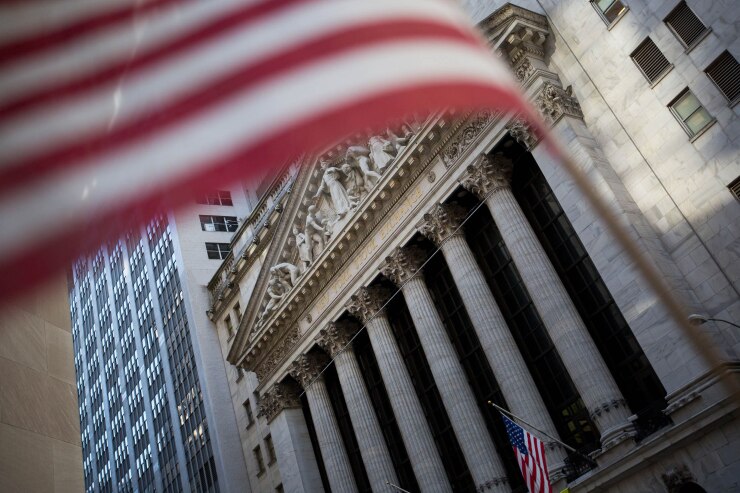(Bloomberg) Tax reform may not be the unalloyed good that stock market investors seem to think it is.
Or so say tax policy wonks in Washington. In a complicated argument, they contend that a provision in the Republican tax plan that's designed to speed up economic growth paradoxically could put downward pressure on equity prices.

The relevant proposal would allow companies to immediately write off for tax purposes all their spending on machinery, computers and other capital investments. The aim: To coax firms into making more productivity-boosting outlays. It would be a big change from the current tax code, which requires that some items be written off gradually over time.
The shift to so-called full expensing would effectively enhance the value of companies with big future capital spending plans relative to those that already sunk a lot into their business. And that in turn could prompt investors to reassess how much they're willing to pay to own shares of established companies listed on the stock exchanges, experts in the tax field say.
"You'd rather invest in something new than purchase the old capital stock through the equity market," said former Congressional Budget Office Director Douglas Holtz-Eakin, who now heads the American Action Forum think tank in Washington. "To make them equally attractive again at the margin, the equity market has to go down."
To be sure, lawmakers have been preoccupied with healthcare reform and haven't even begun on their planned overhaul of taxes, so it may be months before this comes to the fore.
But it's well worth asking how much of an impact this particular proposal might have. And on first pass, it looks like it could be a lot.
The new corporate tax rate in the House Republican tax plan is 20 percent, down from 35 percent currently. That implies that equity prices need to decline that much to bring the value of old and new capital in line. Throw in estimates that debt comprises about a third of corporate capitalization and the impact on equities could be even larger.
There are good reasons though to think the hit won’t be anywhere near that big. For one thing, some capital is already eligible for full expensing, so the stock market has presumably already discounted that. For another, land and inventories are not subject to 100 percent write-offs under the Republican plan.
Put it all together and the knock to equities from the change in expensing probably will be less than 10 percent, experts say.
"Between the offsetting effect of the current treatment and the limits on the expensing treatment under the proposed treatment, I only get something around 6 percent," said Jane Gravelle, a senior specialist at the Congressional Research Service, who spoke for herself and not her organization.
Still, that's not insignificant—and it's something that stock market investors may be missing in their enthusiasm for tax reform.




